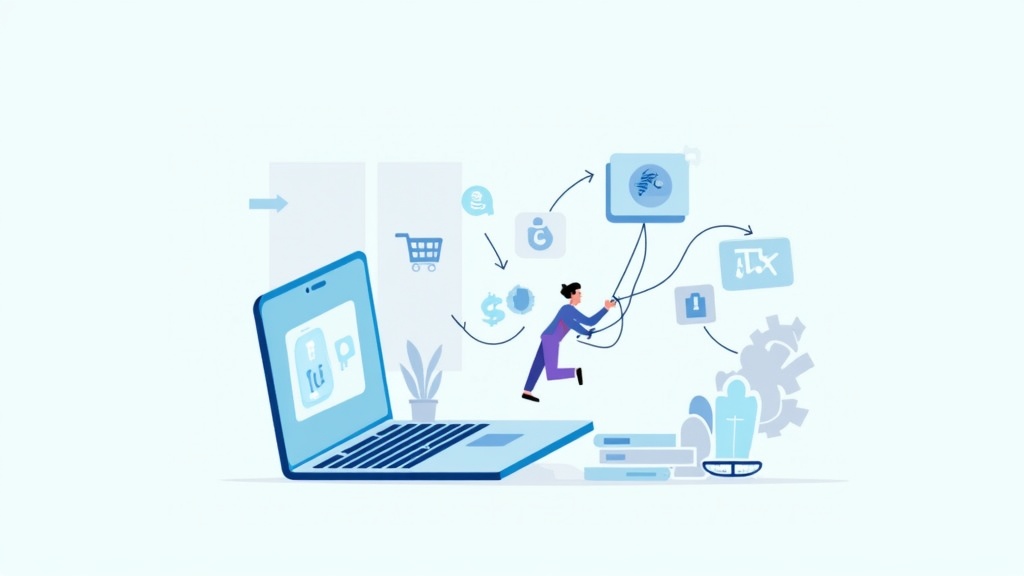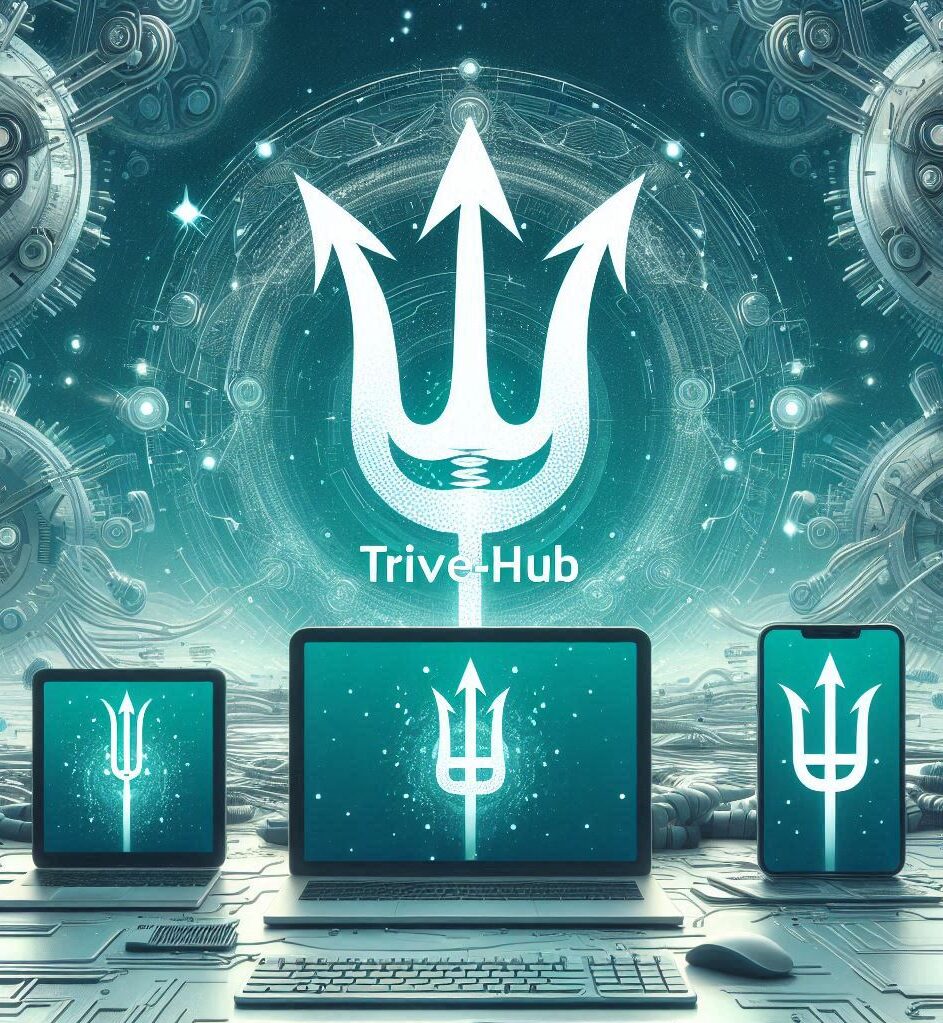If you’ve spent any time online, you’ve probably come across the term “affiliate marketing.” It’s one of those buzzwords floating around blogs, YouTube, and social media, but what does it actually mean? I’ve been around the affiliate scene for a while, and I can tell you it’s easier to get started than most people think. If you’re looking for a straightforward way to earn money by recommending products and services you already believe in, affiliate marketing might fit the bill. Here’s a clear look at how it works and how you can jump in.

What Is Affiliate Marketing?
Affiliate marketing is a way for you to earn a commission by promoting other people’s or company’s products. You pick a product you like, share it with your audience, and earn a bit of the sale if people buy through your unique link. It removes the headache of creating your own product or handling payments and shipping. You’re basically the middle person, hooking buyers up with sellers and grabbing a slice of the pie for helping out.
It all happens online: websites, blogs, social media, email lists, you name it. Companies love this model because they only pay for real results. Affiliates, that’s what you’d be called, love it because it lets you build income streams without a huge upfront investment.
How Does Affiliate Marketing Work?
The magic behind affiliate marketing is pretty simple, even though it can look complex from the outside. Here’s how it usually plays out:
- Join an Affiliate Program: You sign up for an affiliate program, usually for free, with brands like Amazon, eBay, or specific companies that fit your interest.
- Get Your Affiliate Link: After signing up, you get a special tracking link. This is the link you’ll use to promote the product, whether it’s on your blog, YouTube, or socials.
- Share and Promote: Use your website, social platform, or email to recommend the product with your affiliate link included.
- Earn Commission: If someone clicks your link and makes a purchase (sometimes even just signs up), you earn a commission. The tracking link makes sure the company knows who sent the buyer.
Most affiliate programs include a “cookie period,” like 24 hours to 60 days. If someone clicks your link but comes back and buys later, you still get credit. Pretty handy!
Types of Affiliate Marketing
There are a few styles or models of affiliate marketing out there. These give you some flexibility based on your comfort level and how hands-on you want to be:
- Unattached Affiliate Marketing: You don’t need direct experience with the product. You’re simply running ads or sharing links, maybe with Google searches or social ads.
- Related Affiliate Marketing: Here, you have a personal brand or platform that’s related to the thing you’re promoting, but you may not have used the product directly.
- Involved Affiliate Marketing: You’re directly experienced with the product. Maybe you’ve done reviews, tutorials, or testimonials. This tends to build the most trust and can convert best.
Common Affiliate Marketing Terms You’ll Hear
Affiliate marketing has its own lingo, and you’ll see these shortcut words a lot:
- PPC (PayPerClick): You get paid each time someone clicks your link. Not as common as getting paid for actual sales, but sometimes seen in ad networks.
- PPL (PayPerLead): You get paid when someone signs up or becomes a lead for the company, usually by filling out a form or registering.
- PPS (PayPerSale): This is the gold standard: you earn a cut only when a sale happens from your link.
- Conversion Rate: The percent of people who click your link and actually buy or sign up. Higher is always better!
- Cookies: Small files that track who sent referrals and for how long. Super important for making sure you get credit!
- GA (Google Analytics): Google’s free tool for seeing who visits your site, what they do, and which links they click. This helps you see what’s working and what needs tweaking.
Getting Started with Affiliate Marketing
There’s not much in terms of startup cost, which is why affiliate marketing attracts so many beginners. Here’s how you can get going quickly:
- Pick Your Niche: Don’t go super broad. Focus on something you know or care about, like outdoor gear, cooking, personal finance, gaming, or DIY repairs. This helps build an audience who trusts your recommendations.
- Research Affiliate Programs: Look for affiliate programs that match your niche. Amazon Associates and ShareASale are popular, but every industry has their own options.
- Create Content: Start a blog, open a YouTube channel, launch a podcast, or post on TikTok and Instagram. Your content should genuinely help people and naturally mention your affiliate links.
- Stay Transparent: Always tell your audience about affiliate links. People appreciate honesty and most places, like the FTC in the US, require it by law.
- Track Your Results: Use tools like Google Analytics and built in tracking from affiliate networks. This shows which links work and what people are actually interested in.
Basic SEO and Keywords in Affiliate Marketing
SEO (Search Engine Optimization) is a big part of making affiliate marketing work. SEO helps your content appear higher in search results so more people see your stuff. Here’s a quick look at how keywords and SEO can give you a boost:
- Keywords: These are phrases or words people type into Google (think “best air fryer,” “budget camping gear,” etc.). Picking the right ones for your audience helps bring traffic to your website or videos.
- Organic Traffic: Visitors who come from search engines rather than paid ads. Super valuable since it keeps costs down.
- Content Optimization: Add keywords naturally in your articles, reviews, and videos’ descriptions without cramming them everywhere. Good content answers real questions, so Google recommends it to searchers.
There’s a lot more to SEO and keywords, and it’s a topic worth its own deep jump in. But for now, just knowing the basics is enough to get moving in the right direction.
Things to Consider Before Jumping In
Affiliate marketing isn’t a get rich quick plan (despite what those wild ads on YouTube say), and like anything worth building, it does take honest work. Here are a few things to know ahead of time:
- Competition: Some niches are super crowded, so new affiliates might need time to break through. Picking a specific subniche or local angle can help.
- Payout Times: Most affiliate programs run on schedules; some pay out monthly, some wait 30 or even 60 days after the sale to make sure it’s not refunded.
- Consistency Matters: Posting quality, helpful content on a regular schedule goes a long way in building trust and a steady audience.
- Program Policies: Each affiliate program is a bit different, with unique rules on promotion, payouts, and tracking. Always review those so there aren’t any surprises.
Dealing With Early Challenges
Getting started can feel a bit slow, especially when building an audience takes time. I’ve found the first few commissions are the hardest. After that, things get way easier. Connecting with others in the community, reading guides, and keeping your content real (not pushy) makes a much bigger impact.
Affiliate Marketing in the Real World: Examples
So what does this look like in everyday life? Here are some practical ways people pull off affiliate marketing:
- Product Reviews: A blogger reviews camping tents, adds affiliate links to buy at REI or Amazon. If a reader buys, the blogger earns a cut. Simple and honest, if the review is legit.
- HowTo Guides: A YouTuber walks through setting up a smart home. They link to a special page for the exact lights and gadgets they used, making money every time someone hits “Buy.”
- Resource Pages: A website focused on budgeting creates a “My Favorite Apps and Tools” page, packing it with affiliate links for budgeting apps and credit cards.
- Email Newsletters: Weekly or monthly emails go out to subscribers highlighting great deals using affiliate links.
The cool part? Once your content is online, it can keep earning affiliate commissions long after you’ve posted it. That’s a real win for anyone who wants to build passive income sources.
Frequently Asked Questions
Here are a few common questions I run into from people curious about affiliate marketing:
Question: Do I need a website to start affiliate marketing?
Answer: Not always. You can use YouTube, TikTok, Instagram, or even email to share links. But having your own website gives you more control and credibility.
Question: How do I find the best affiliate programs?
Answer: Look in your niche first. Google “[your topic] + affiliate program.” Also check networks like ShareASale, CJ Affiliate, Impact, and Amazon Associates.
Question: How much money can I make?
Answer: It totally depends on your traffic, how well your recommendations match your audience, and the commission rates. Some folks make a few bucks a month, others make a fulltime living once they scale up.
Question: Is affiliate marketing legal?
Answer: Yes, but you need to follow disclosure rules, like the FTC guidelines in the US, and be honest with your audience about your affiliate relationships.
What Is Wealthy Affiliate and How Can It Help?
Wealthy Affiliate is a popular platform designed specifically for people looking to get started, or take up a notch, in affiliate marketing. I’ve poked around inside, and here’s what you’ll find:
- Training and Tutorials: Step by step courses on topics like SEO, keyword research (KW research), and website building.
- Website Building Tools: Easy to use tools so you can set up a site in just a few clicks. No tech wizardry needed.
- Community: Active forums and live chat where members help each other with questions, tips, and encouragement. No one’s left stuck on tough problems.
- Research Tools: Built in keyword research tools make it easy to find what people are searching for and create content that actually gets seen.
Wealthy Affiliate is worth checking out if you want structured guidance instead of YouTube rabbit holes. It can speed up that early learning curve and introduce you to people who’ve already done what you’re looking to do. You’ll be able to learn from their real world experiences and avoid some common mistakes.
Affiliate marketing offers a clear, accessible way to start earning from your passions and knowhow. With tools and communities like Wealthy Affiliate, plus a basic understanding of the new language of online marketing, there’s never been an easier time to test the waters. It’s all about offering real value, being transparent, and steadily growing your corner of the internet. If you’re curious, jump in, experiment, and see where this eye opening opportunity can take you!
